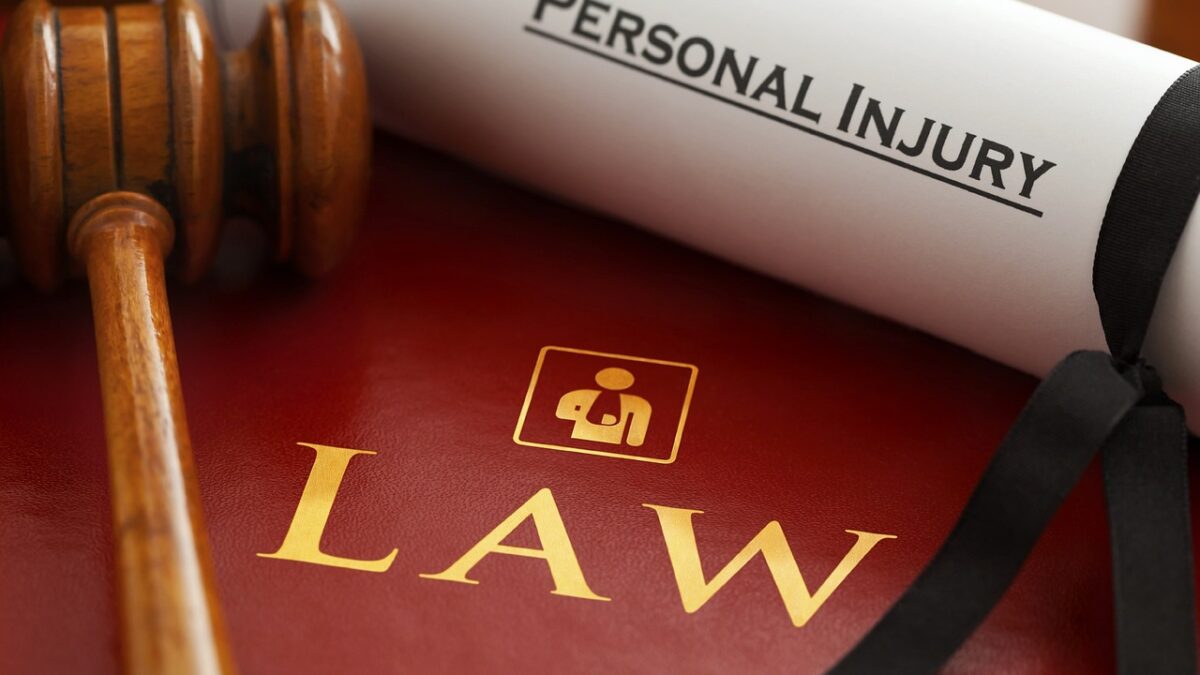Navigating personal injury laws in Atlanta can be a complex and daunting task. Nevertheless, these laws have the potential to substantially impact your capacity to get fair compensation in the aftermath of an accident produced by another party.
With the help of an Atlanta personal injury attorney, you can navigate these intricacies. They are well-versed in the Atlanta, GA personal injury claim statutes and how any infraction of these rules can limit your compensation recovery. They are also experts in using the law to their client’s advantage in determining who is legally liable for their injuries and property damage.
By hiring a personal injury lawyer, you won’t have to stress about being well-versed in the relevant legislation. On the other hand, it could be helpful to be familiar with the fundamentals of how certain Georgia legislation impacts the result of your injury claim.
Statutes that Can Impact Your Personal Injury Case in Atlanta
Comparative Negligence Rule in Georgia
Injured parties in Georgia can be subject to different amounts of compensation depending on the state’s comparative fault rules. Each party’s share of responsibility for the accident’s or injury’s cause is considered for determining damages under the comparative fault theory. Simply put, the amount of money owed to a plaintiff in a personal injury lawsuit is proportional to the amount of blame that party bears for the incident.
To be eligible for damages under this statute, the injured person must have been 49% or less at blame for the event that resulted in their injuries. Thus, your potential compensation is diminished by the proportion of blame you bear. Put another way, if you were somewhat to blame for the accident, you would not be able to get full reimbursement for your losses. Injured parties that bear more than 50% of the responsibility for their injuries are not eligible for any compensation.
For instance, if an accident occurs and the plaintiff is determined to be 30% at fault and the overall damages amount to $100,000, they would have the right to claim $70,000, which is 70% of this amount. However, the plaintiff would not get any money if they were more than 49% to blame.
Deadlines for Atlanta Personal Injury Cases
After an accident has happened, there is a limited amount of time to file a case in the state’s civil court system. According to O.C.G.A. § 9-3-33, claimants have up to two years from the date of the accident or incident to file a lawsuit for physical injuries.
Filing a lawsuit outside the allotted two-year period usually leads to the court declining to consider the matter, although there are a few significant exceptions to this rule. Therefore, it is crucial to act promptly to protect your legal rights and the possibility of receiving compensation.
Wrongful Death Statute
Cases involving wrongful death are specifically addressed under the Wrongful Death Act. For instance, Georgia laws specify who is eligible to sue for wrongful death in the state. A wrongful death suit can only be filed by surviving spouses, children, or parents. For parents to submit a claim, the deceased should have been single and childless when they passed away.
Damages in a wrongful death case are likewise split according to the legislation. After a person dies, their loved ones get a portion of the estate based on the provisions of their will. However, if a will is not present, the damages are distributed in accordance with the law.
If there are no children, the spouse receives all the compensation. In the event of a child or children, the fund is divided as follows: 1/3 to the spouse, and the remaining 2/3 to the children. A different set of regulations applies in cases when a kid has already passed away before either parent.
The Process of Filing a Personal Injury Claim in Atlanta
The plaintiff carries the burden of proving the defendant’s fault to pursue a personal injury claim in Atlanta. Below are the key steps involved in filing a personal injury claim in Atlanta:
1. Proving Negligence
Most personal injury claims hinge on the idea of negligence, which is fundamental since it establishes culpability. Defendants in cases involving personal injuries therefore need to demonstrate the four cornerstones of negligence: duty of care, breach of duty, causation, and damages.
2. Gathering Evidence
Evidence is crucial for deciding who is at fault in a case involving a personal injury. It is what ties carelessness and culpability. To strengthen your case, you must provide evidence such as medical records, eyewitness accounts, police reports, video evidence and expert views.
3. Submitting a Claim
Filing a personal injury claim is different from suing. If your Atlanta personal injury claim is refused or the insurance company’s settlement offer is not satisfactory, you can proceed to file a personal injury lawsuit.
4. Settling Through Negotiations
This requires you to negotiate with the insurance provider, who can attempt to give you less money than you’re rightfully due.
Proceeding to Trial (If Necessary)
After all reasonable attempts at settlement have been exhausted, the matter can go to trial, where a judge or jury will decide how much money the plaintiff is due.
Conclusion
Understanding the basics of personal injury law can help you safeguard your rights after an accident and navigate the intricate legal system. However, keep in mind that every personal injury litigation is unique. Therefore, it’s essential to consult a seasoned personal injury attorney who can assist you in navigating the legal system and obtaining the compensation you deserve if you have been injured and believe another party is responsible.





 Rated 4.6/5 ★★★★☆
Rated 4.6/5 ★★★★☆